What an executive education course did for me
Roula Khalaf, Editor of the FT, selects her favourite stories in this weekly newsletter.
Sue Simmonite
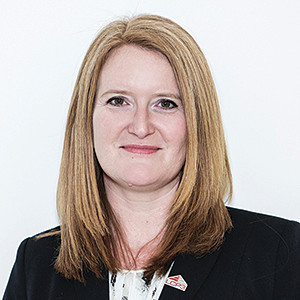
British. Alliance Manchester, Leading Complex Projects, Programmes and Portfolios custom course, graduated 2018. Project management and control capability director, BAE Systems
What did you learn about yourself?
I learnt to understand and accept my own style and characteristics, and how to lead authentically and not try to be someone I’m not. I also learnt that effective leadership is not about being completely competent in everything but working as part of a team. After 21 years with BAE I was looking to gain a deeper and more intellectual understanding of project management and leadership, in a way I could apply in my job. The opportunity to develop with colleagues from across our global business, and work together over 18 months, was brilliant. Also, making effective use of the community of alumni across the company is important and something I have a hand in developing in my current role. Since completing the course, I have expanded my role and been promoted. What I learnt about myself and the way I have applied that and other techniques has definitely helped.
Mark Swierszcz
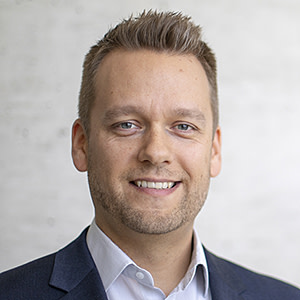
Canadian. Toronto: Rotman, Executive Leadership open course, graduated 2020. Creative effectiveness lead, Google
What stood out most about the course?
The calibre of the instructors, who had the expertise to approach things from a philosophical level versus a practical level. That was the most surprising thing: that there was more benefit in being able to talk about business in this way, rather than being too granular. They could do a one-hour talk about the ethics of leadership scenarios, and suddenly you would understand why, say, Google or GE manage companies the way they do. That is the kind of perspective an in-house company course facilitator does not have. I have always had a concern that I didn’t get a traditional education, because I went straight into a career in entertainment and music. I would say: don’t be nervous. Universities are very accepting of people who do not have a traditional education; it’s not just the chief executive of the packaged goods company, it is people who have “leaned in” for 15 years and now have some breathing room to brush up on their skills.
Nimisha Jadeja
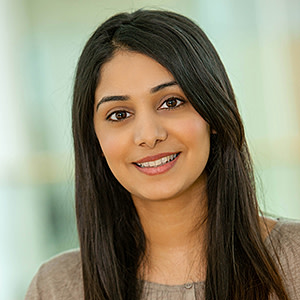
British. Duke Corporate Education, Leading Business custom course, graduated 2019. Head, medical innovation, AstraZeneca
How did you find the experience?
Disruptive in the most positive, uncomfortable and immersive manner. Many courses fail to deliver on relevance, and the experience feels tick-box or not worth the time. Duke CE’s “think big, start small” mantra is powerful, focusing on the vision that will drive you forward and starting small so that you are not overwhelmed and you are able to make progress immediately. I would take my weekly learnings and apply them directly to my role at AstraZeneca. The team was pivoting the way we provide scientific information to a digital format, but the timelines were based on having everything perfect. I worked with the team to apply a “minimum viable” approach — less elegant, but to garner feedback from our customers and use this to create a more customer-centred solution. The biggest change has been in my own career; I moved from a medically regulated role to one focused on driving medical innovation.
Alexandra Libes
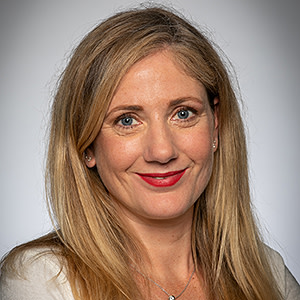
French. Edhec Paris, Advanced Management Programme custom course, graduated 2019. Membership development director, Best Western
Why did you take the course?
I have been with Best Western for 15 years. I took a career break to have children and when they were bigger I thought about my career’s evolution. I looked at executive MBAs, but they require a significant investment of time. This course was in Paris, but we had a trip with the French navy from Mexico to Charleston in the US and a week in San Francisco discovering new businesses based on technology and innovation. These are things you cannot learn in school. I have changed the way I lead meetings and how I behave in the boardroom. I was proactive before, but what I have learnt — about the innovation ecosystem, approaches to strategy — allows me to be more so. I am much more confident. I feel ready to take on new challenges, and I am thinking of taking on a job with more responsibility in future, like being a chief executive.
Fernando Cuccioli
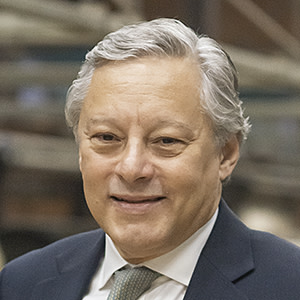
American-Argentine, Stockholm School of Economics, International Executive Program open course, graduated 2019. Executive vice-president, Americas, DeLaval
What impact has this course had on your career?
I was in the process of transitioning to a senior role, reporting to the chief executive. He suggested I take this course to refresh concepts from the perspective of the new economy. I did an MBA in the mid-1990s and have held leadership and other roles in different companies for 25 years. On the people side it helped me to make the transition from a management to a leadership role; helping others to grow, facilitating without telling them what to do. I have learnt to ask the right questions to provoke thinking, to understand their needs, and listen more. Given the feedback from my team, there has been significant improvement. It was good to spend time in an international setting, as the three modules took place in Stockholm, Shanghai and Boston. The course was very well done, though gender diversity in the team could have been better — I think we had four women out of around 30.
Comments